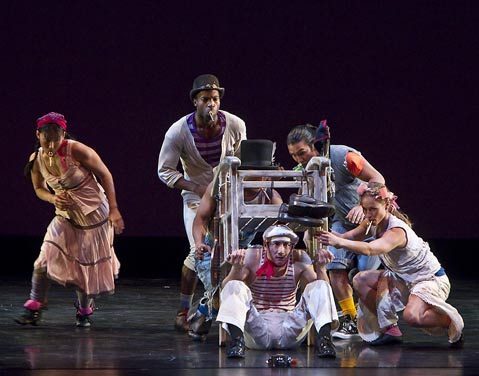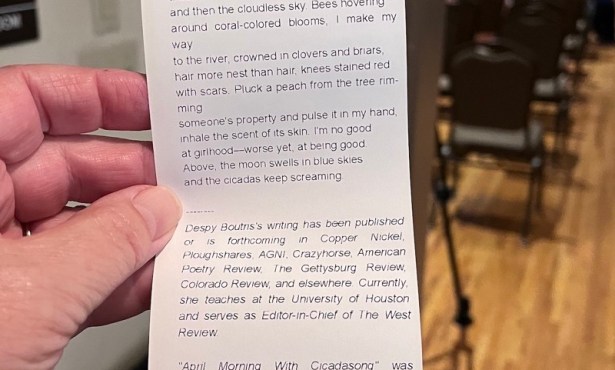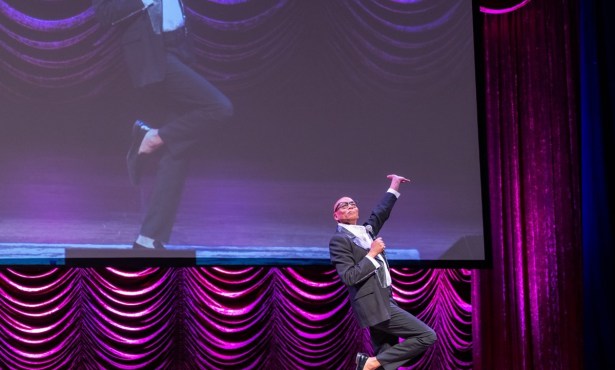Pilobolus at the Granada
Popular Dance Company Turns to Storytelling

Pilobolus’s sold-out show at the Granada last Thursday was in keeping with the modern dance company’s nearly unparalleled ability to attract an audience, though what they delivered was another story. The program covered the full chronological range from “Pseudopodia” (1973)—a tight, mesmerizing study of flexibility and fluidity—to “Contradance” (2010), a loosely sprawling ensemble work that premiered this summer at the American Dance Festival. Stops along the way included “Gnomen” and “Duet” from the 1990s, and 2004’s punky, crowd-pleasing “Megawatt” set to music by Primus and Radiohead. The problem with a program like this is that it exposes the progression of the company from brilliantly inventive early works through variations on that theme from the middle years and into the murky storytelling territory that Pilobolus occupies today.
To be fair, it’s been a tough time for the company with the recent loss of cofounder Jonathan Wolken, who had remained instrumental in the artistic direction of the company. And perhaps every dance company should be forgiven a little wallowing in the shallows of the recession, which has hit contemporary dance as hard as any field. Yet Pilobolus was founded by a bunch of college coeds with few resources other than their appetite for experimental collaboration, and the dances they created in the early ’70s still carry the electrical charge of imagination unleashed.
In “Pseudopodia,” for example, solo performer Jun Kuribayashi tumbles across the floor like a wind-driven seedpod and unfurls like a caterpillar, ripples undulating through his body. Blood-red light and a score like a heartbeat give this piece a delicious tension. Time seems suspended. There is no story, only the mesmerizing contortions of a nearly inhuman body.
“Contradance,” in contrast, tells the tale of an outsider (Kuribayashi again) who has to prove his worth in a new community before he wins his girl. The dance has a childlike innocence, helped along by Liz Prince’s whimsical costumes—overalls and a top hat, knee socks and a bodice dress. Yet despite some fun play with weightlessness, “Contradance” just doesn’t make much of an impact.
Pilobolus has also been playing lately with shadow puppetry; this program included “The Transformation” in which a woman mutates into a dog (though it was clear her “nose” was actually her elbow). Here, the company that’s so good at stunning physical feats has nearly abandoned them for storytelling. It’s not what they’re best at, and it reads like space filler. Yet drawing an audience is at least half the battle, and Pilobolus has that part down.



